Warning: The below article contains a very graphic image of the horse's injury
A Liphook vet is urging horse riders and owners to take extra care when negotiating gates after a horse suffered an horrific injury.
Liphook Equine Hospital vet Ine Refseth rushed to the aid of Thoroughbred BB who was injured after she became wedged between a latch and a 12ft metal gate while trying to follow one of her equine friends out of their field at Hewshott, near Liphook.
As 15-year-old BB ran backwards to try to escape, the latch tore through her skin and muscle, creating a large open wound that exposed her ribs and chest cavity.
A quick-thinking farrier who was on site applied a bandage to stem the bleeding and called Liphook Equine Hospital for help, as well as alerting BB’s owner who was driving home from work.
Vet Ine sedated the mare to keep her calm, before carefully cleaning and stitching the wound and applying a belly band to protect it.
Ine visited BB every few days to clean the wound, change the dressing and monitor the healing process, and performed a procedure to remove dead skin and muscle when that became necessary.
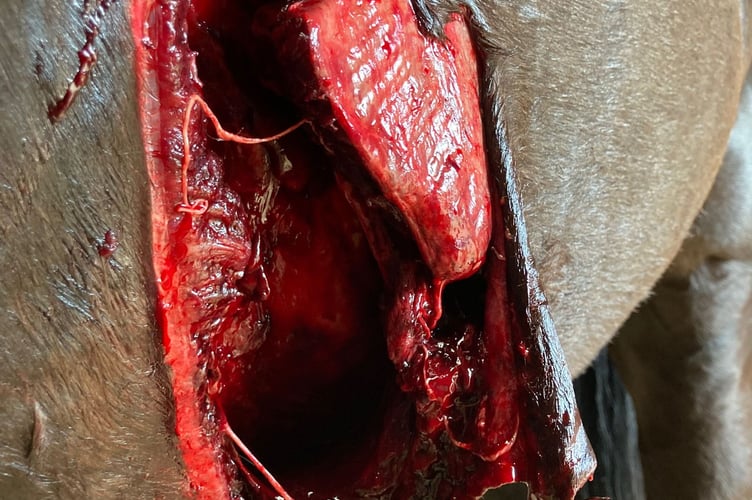
After debriding the wound, it was then left open to allow it to heal naturally, and as it progressed Ine used laser therapy to promote healing.
The wound has now healed over and after three months on box rest – where she was confined to her stable – BB has been able to return to her paddock and be ridden again.
Ine, one of Liphook Equine Hospital’s ambulatory vets, said BB’s wound was one of the worst she’s ever seen.
Ine said: “BB had ripped a huge hole in her side that was big enough for me to fit my hand inside to palpate her ribs and check they hadn’t been damaged.
“Treatment involved cleaning the wound and flushing it out to avoid any contamination and reduce the risk of infection, then I stitched the wound and muscle together.
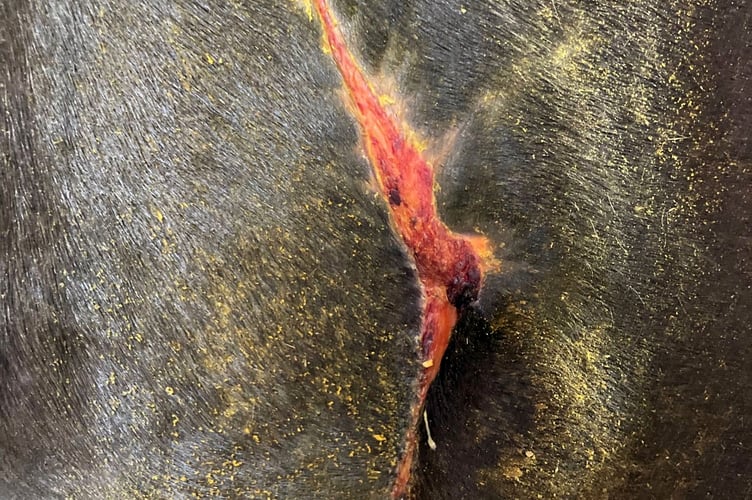
“Some of the skin and muscle did break down a few days later, which was due to the compromised blood flow to the area, but only half of the wound was affected. Once I had removed the dead tissue it continued to progress well and using laser therapy helped speed up the healing process by stimulating granulation tissue.
“I’m really pleased with how the injury has healed and the scar is much smaller than I anticipated. There is a little bit of muscle wastage, but because the injury was behind where the girth sits, BB can still be ridden and should be able to return to full work.
“Gates can cause horrible injuries and I would urge anyone who is riding or leading to make sure you have plenty of space between the horse and the latch. For paddocks, it’s a good idea to consider investing in safety gate latches that are designed to prevent injury.”
BB’s owner Gemma Stacey said that when she arrived at the yard a few minutes after BB’s accident, she was convinced her beloved horse wouldn’t survive.
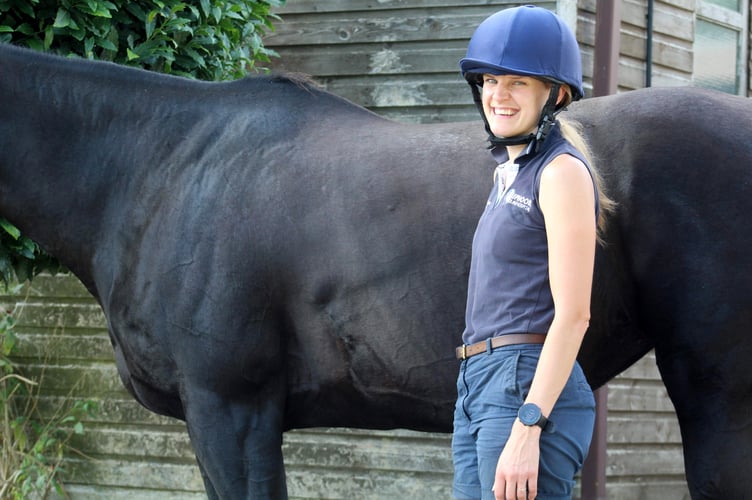
She said: “It was horrific. There was a huge open wound in BB’s side with pieces of skin hanging off it. Thinking back to how bad the injury was, it’s incredible what an amazing recovery she has made.
“I have Ine to thank for BB’s recovery as she did such an amazing job treating the wound on the day of the accident, then dressing it regularly and removing all the damaged tissue when the wound broke down. She gave BB the best care possible and has put in a lot of hours to help her get better.
“I am also very grateful to my farrier, Pete Gledhill, for his quick thinking as by covering the wound straight away he helped avoid it becoming contaminated.
“I had no idea gates could cause such serious injuries, and now I’m really careful when leading horses through them.”
Liphook Equine Hospital is one of the largest specialist equine veterinary practices in the UK and combines a state-of-the-art equine hospital with a busy ambulatory veterinary practice caring for equine patients in the south east.

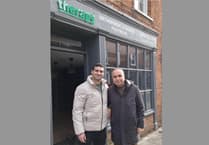
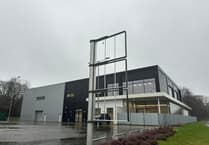

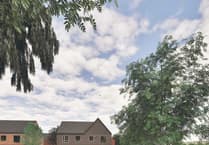
Comments
This article has no comments yet. Be the first to leave a comment.